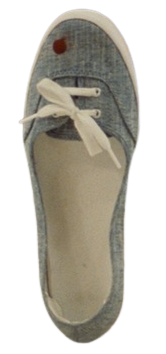Gordy.
by Jillian Caulfield, posted August 1, 2022

This article contains spoilers for Nope (2022, dir. Jordan Peele), and potentially disturbing discussions of horror violence.
I’m glad I didn’t have time to write about Nope (2022, dir. Jordan Peele) right after I saw it, and instead had to wait a few days to talk about it. Previously, though I was enamored with what I did understand, I felt that some of the figurative threads in the film were just a little too tangled, some of the ideas a little too opaque, to fully click, going beyond being challenging to simply being a little confused. But over the past week, I’ve found myself turning those threads over in my mind a lot, and they've slipped into place naturally. There's something to be said about a work so dense yet so intuitive, so able to get stuck in your head.
If I wanted to stay concise about my thoughts on Nope’s themes, I could simply quote Brett Arnold’s review:
...a sci-fi blockbuster mocking the industry, about how audiences (“The Viewers”) chew up artists and spit them out, commodify trauma, all the while advocating for the majesty of moviemaking magic [...] A spectacle that examines spectacle and all the awful shit we can’t help but crane our necks to stare at and try to capture on camera.
But with such a densely-layered film, I think it’s worth teasing out some of the pieces that have stuck with me – most notably the Gordy’s Home! flashback.
The “Gordy’s Birthday” incident is, perhaps, the scariest thing I’ve ever seen in a horror film, and certainly the most powerful horror I’ve ever experienced.
Watching the carnage unfold from a young Ricky’s vantage point, as helpless as he is hiding under that table, made me feel sick with fear. Hearing the chimp’s blows land. The sounds of him eating human flesh. The balloons popping, one by one. The stomach-dropping moment when he looks directly at Ricky – directly at us. The almost-numb shock when the now-calmed chimp’s brains are splattered across the set – another painful loss for Ricky, someone he somehow still felt a kinship with.
Yet, the effectiveness of the scene goes beyond its ability to scare us. It shows us directly how the entertainment industry can push its pawns into darkness, twist them into something unrecognizable, no matter how gentle they once were. It shows us a symbol of the industry violently eating an actress. It shows us a child actor, an actor of color, being irreversibly damaged in the creation of product.
It makes it clear how cruel and inhuman it is that there is a fandom surrounding the shocking incident, that it popped up on the cover of Mad Magazine and in a Saturday Night Live skit. It makes it more horrific that Ricky – now “Jupe,” having taken on the persona of the pre-trauma cowboy role he’s become fixated on, the hero of Kid Sheriff – must monetize it to make do since he seemingly was never able to act again. That he must laugh it off to survive.
But perhaps more importantly, it criticizes us directly. Not the vague "us," the abstract notion of the audience, but the specific "us" watching the film. We’re first teased with the scene at the beginning of the film, and shown flashes in Jupe’s office. We’re made to feel curious about it.
Then the film shows us the incident in excruciating detail.
This is what you wanted to see, right? it asks, sneering.
It’s clear that Peele is critiquing our transformation of tragedy into a spectacle to be consumed, yet as he repeatedly draws parallels between the UFO’s (The Viewers’) and animals’ instinctive behaviors, he also links this consumption to instinct. We are naturally drawn to spectacle, no matter how morbid. Going beyond this, he also celebrates spectacle’s ability to create meaning out of pain in our own lives, by presenting spectacle as meaningful within the text and creating spectacle with the text itself.
We may understand that what happened on the Gordy’s set was horrific, something to be forgotten, and yet still find the way the shoe stood straight up through the carnage somehow disgustingly beautiful, amazing, a source of meaning, the way that Jupe did, even with gore still fresh on his face, unable to breathe. We may understand that what OJ and Em and Angel and Antlers are doing, capturing the alien on film at any cost, does little to truly stop it, and is dangerous beyond reason. But we still can’t help but feel excited that Em got the shot. That she’s captured a fragile and ephemeral and awful experience that should have never happened in the first place. That she’s transformed it. That she’s symbolically contained it.
Nope accepts, and sometimes even celebrates, the natural human experience of spectacle. In its critique, it’s merely asking us when spectacle crosses that line. When we cross that line. When the balloon pops. When we transform into something inhuman.